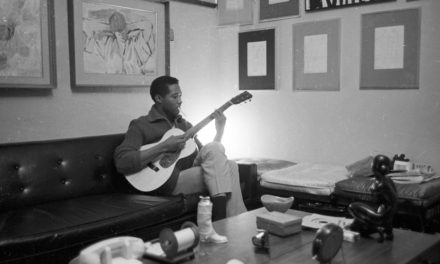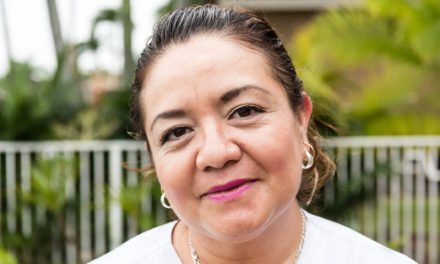
“It’s so easy to be seduced by one’s own subordinated group identities.”
These were words shared with me by a mentor and senior practitioner in this work. He was referring to social group identity and the ways in which our experiences and hyper-awareness around our non-dominant/subordinated group identities (e.g. woman, person of color, low income) could influence our capacity (or lack thereof) to fully own and understand the power or privilege we have as a result of our dominant group memberships (e.g. man, white, high income, straight). While I considered myself well-versed in understanding the theoretical underpinnings of social identity, group membership, and privilege, I found his statement to be compelling and worthy of self-reflection.
In my experience, people have struggled with understanding and owning privilege for a range of reasons: not knowing or being aware, guilt, unwillingness to accept responsibility for systems they didn’t themselves ‘create,’ individual experiences and values around “merit” and “working hard,” or experiencing oppression due to other aspects of their identities. For example, I have experienced white men reject white privilege due to their upbringing in a low-income home; white women deny white privilege due to experiencing gender oppression; Black men reject male privilege due to their experiences with racism; Black women reject cisgender privilege due to their experiences with sexism and racism… and so on. This is not by happenstance. One key characteristic of being part of a dominant group is lack of awareness of the advantages associated with being part of the group. Likewise, dominant groups experience being the “norm,” and standard by which “other groups” are understood or expected to assimilate.
Researchers have also found that power changes the way the brain responds to others. Those with power are more apt to stereotype, less likely to listen to the perspectives of the less powerful, and may be less empathetic. Researchers have concluded that this could explain the tendency for the “powerful” to neglect the “powerless.” This research can explain much of what we experience in our world around equity, [complicity with] injustice and power.
While there might be a myriad of reasons why one might reject experiencing privilege, the urgency in fostering greater understanding of and mobilizing power and privilege for good cannot be overstated. This work is important and must be done. So, how do we support others in understanding their privilege and power? What are some tactics for engaging others in conversations around power and privilege?
- Prime the conversation with education and discussion around identity. Consider asking questions like: What aspects of your identity are most salient for you? Which have most influenced how you experience the workplace and world? Why is that? What aspects of your identity have you chosen to be part of versus those that are inherent (you didn’t choose)?
- Introduce group membership (in/out groups). Understanding identity and group membership are building blocks to understanding concepts like power and privilege. Consider asking questions like: What messages did we learn about who was “in” and who was “out” in the context of our school experiences as children (e.g. athletes were “in;” geeks or nerds were “out”)? Where did these messages come from? How did they influence how we engaged? Using this example underscores how covert and influential messages around who is in/out can be—even when we were not directly responsible for creating them. Expand this discussion with questions, like: Who is considered “in”/”out” in our broader society, and how does this connect back to our identities and experiences? What messages have we learned, consumed, and perpetuated about these groups? How does this show up in social systems?
- Affirm intersectionality. It is important to call out the fact that identity is intersectional, therefore, how we experience power and oppression is too. That is, I can be a Black woman experiencing oppression due to my race and gender identities AND experience privilege associated with being a lighter skin Black woman, a cisgender person who does not have a disability, a U.S. National in the global context. Consider asking questions like: In what ways are your experiences influenced by context or environment? What identities do you think about least or not at all? How might this impact your awareness of your power and privilege? In what ways do your identities intersect to influence how you experience privilege and oppression?
- Reframe conversations emphasizing disadvantage. One study found that people who experience privilege are more likely to use their privilege positively when inequity is framed as another person’s undeserved disadvantage than they are when it is framed as their own unearned advantage. More specifically, white adults who were part of the study were more likely to give part of a hypothetical bonus to their Black colleagues when they learned that their Black colleagues were “disadvantaged” because of their race. They were less likely to give their Black colleagues a bonus when they were told they themselves had an unfair advantage due to being white. Reframing and emphasizing disadvantage experienced by other groups can be a start point to cultivating empathy. This might sound like offering questions like: Have you considered how Black women of the same socioeconomic and education status are more likely to die in childbirth than yourself (if directed to a white woman)? Have you considered how someone who is gay or lesbian may not have the privilege of showing affection to their partner openly (if discussing with someone who is straight)? Have you thought about how someone who is gender non-binary may not feel comfortable having to choose or being stifled in categories that don’t reflect who they are? While this may not be your experience, how might knowing and experiencing this make you feel?
Power and privilege are like a veil that can obscure one’s path towards greater self-understanding, accountability, and action in service of equity. When unchecked and unaccounted for, privilege can cause the best of intentions to manifest as barriers and uphold the status quo—in our thinking, understanding, and, ultimately, in how we act.
Power and privilege are like a veil that can obscure one’s path towards greater self-understanding, accountability, and action in service of equity. Click To Tweet

















